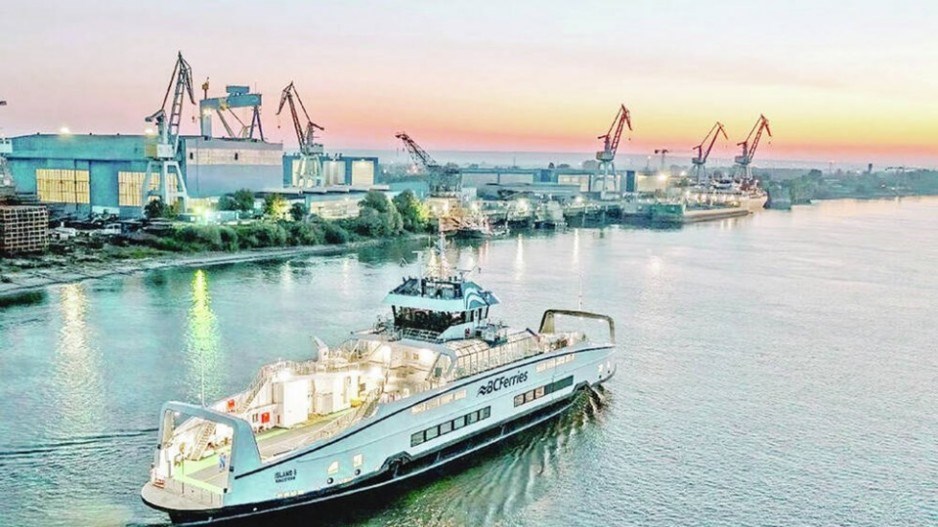B.C. Ferries has won approval to order new hybrid-electric ferries and to install on-shore charging infrastructure at four terminals.
Ferries Commissioner Eva Hage approved the electrification infrastructure and four new vessels, which are expected to be in service by 2027, this week.
The request for proposals for the ferries closed last month, and B.C. Ferries is now in the contract-negotiation stage, company spokesperson Shellene McConnell said Tuesday.
A separate request for proposals for infrastructure will be posted later in 2024, she said.
The four new hybrid-electric ferries will bring the number of Island-class vessels in the fleet to 10.
Plans call for the new ferries to serve the Nanaimo-Gabriola Island and Campbell River-Quadra Island routes, each of which would be served by two ferries.
The Island-class ferries now serving the two routes will be relocated to other routes to add capacity for current and future demands, the company said.
A standby relief vessel will be available for when other Island-class vessels are in refit, B.C. Ferries said.
Capacity is expected to increase by 20 per cent on the Crofton-Vesuvius route, where two Island-class vessels will replace the Quinsam. The Quadra Island-Cortes Island run will see capacity rise by about 70 per cent when one Island-class ferry replaces the Tachek.
A ferry will be deployed year-round for the busy Hornby Island-Denman Island route, doubling capacity and improving travel certainty, B.C. Ferries said.
There’s also the potential for more seasonal capacity on the route between Swartz Bay and Fulford Harbour on Salt Spring, it said.
No cost estimate for the ferries or infrastructure work was released.
The company’s first six Island class ferries represented a $300-million investment. The company estimated in 2021 that charging infrastructure at nine terminals would cost about $150 million.
B.C. Ferries says the four new vessels will reduce emissions by 10,000 tonnes of CO2 equivalent.
It plans to use funds in its carbon reduction investment account, established to help pay for electrification at terminals and cut back on greenhouse gases.
PricewaterhouseCoopers was hired by the Ferry Commissioner’s office to help analyze the application.
While the commissioner determined the project is “reasonable, affordable and prudent,” she noted that only one option was put forward by B.C. Ferries.
“While the preferred option appears to be the best option, the application could have presented more options for detailed quantitative analysis to demonstrate the preferred option best meets the objectives set out for the project.”
McConnell said in a statement that B.C. Ferries welcomes the feedback. “We’re going to be looking at those closely as we move ahead with implementation and in the context of future projects and applications to the Commissioner.”




